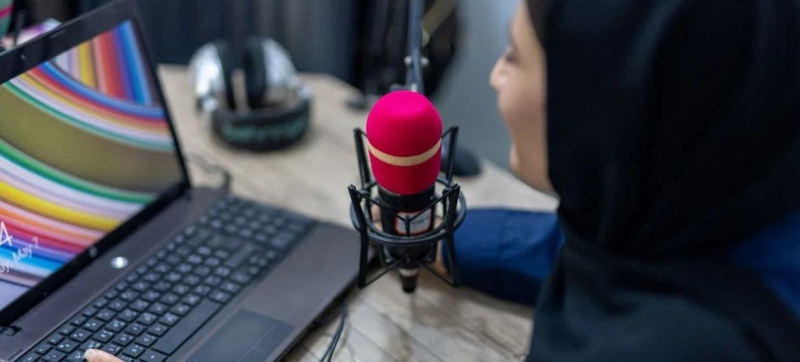
Under Taliban rules, announcers of different genders cannot appear on the same program together. In some provinces, women are not even allowed to call in to radio programs. New UN report highlights restrictions on media in Afghanistan, discrimination against female journalists Human Rights
Journalists in Afghanistan are working under increasing censorship and their access to information is restricted. And women face the most severe restrictions and discrimination, according to a report released Tuesday by the UN Human Rights Office and the UN Mission in Afghanistan.
The report covers the period from August 15, 2021, when the Taliban came to power in Afghanistan, to September 30, 2024. During this period, the report says, at least 256 cases of arbitrary arrest and detention of journalists, 130 cases of torture and ill-treatment, and 75 cases of threats or intimidation against media workers, often for perceived criticism of the de facto authorities, were identified in the country.
Arrests, Pressure, Self-Censorship
Journalists deemed by the Taliban to have crossed “red lines” have been detained for periods ranging from a few hours to several months without due process. In some cases, they have been sentenced and given prison terms.
Media workers also often face intimidation and feel insecure due to vague rules about what they can and cannot report, leading many to resort to self-censorship.
The report says that since August 2021, many media outlets have been forced to cease operations, whether as a result of direct pressure on them or the country’s overall economic downturn and the end of donor funding. In addition, many journalists have left the country, which has led to a shortage of specialists in the media sector.
The de facto authorities have also interfered with the work of foreign journalists working for international media outlets.
Official Taliban Media Policy
On September 19, 2021, the Taliban issued an “11-Point Guideline” for the media, banning, among other things, the publication of content deemed to contradict their own assessment of Islam and Afghan culture, or more broadly, contrary to vague notions of “national interests.”
Other restrictions include a ban on broadcasting music or films deemed to be contrary to Sharia religious law, including those featuring women. In media offices, men and women must work in separate work areas, and announcers of different genders cannot appear on the same program together. In some provinces, women are not even allowed to call in to radio programs. The only exceptions are programs that focus on health or religious issues affecting women.
The de facto authorities have also banned media outlets from broadcasting live political talk shows. Instead, they must pre-record the programs, allowing the watchdog to remove any content deemed critical of the Taliban’s policies and decisions. Talk show participants are selected from a pre-approved list. If TV stations want to invite someone not on the list, they must first get approval from the de facto authorities. The topic of discussion must also be pre-approved.
There have been reports of some de facto authorities refusing to give interviews or talk to women. They advocated for the presence of male journalists at press conferences, while female journalists were either not invited at all, were barred from attending upon arrival, or were asked to move to the back of the room if they did attend.
On May 3, 2023, in the city of Nili in Daikundi province, the de facto authorities marked World Press Freedom Day with an event to which female journalists were reportedly not invited.
The Taliban must guarantee freedom of expression
Freedom of expression and freedom of the media are essential in every society, the Human Rights Office emphasizes. Journalists and media workers perform a vital function in informing the public about events that affect their daily lives, including humanitarian and security issues. The media are also essential to ensuring transparency and accountability in government.
UN High Commissioner for Human Rights Volker Türk said that such all-encompassing control over the public space – or what remains of it – not only stifles the work of the media, but also has a negative impact on the entire Afghan population, their access to information and the governance of the country.
Türk stressed that the Taliban must respect the obligations of the Afghan state under the International Covenant on Civil and Political Rights and guarantee the right to freedom of expression without restrictions, including on the basis of gender.
